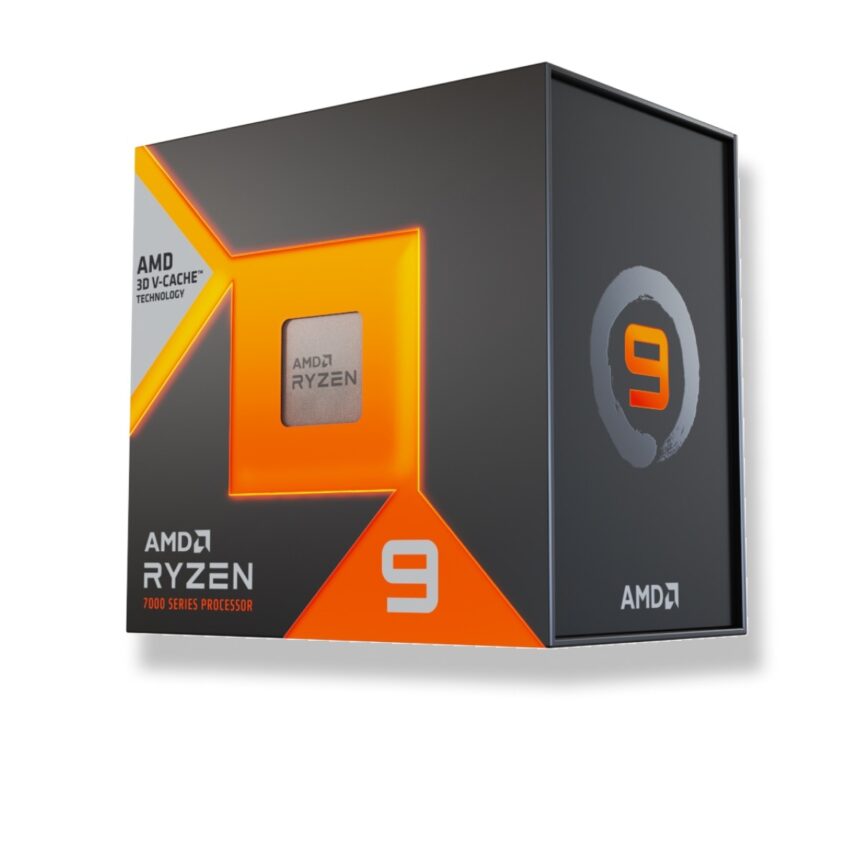When it comes to choosing a processor for your computer, the debate often comes down to two major players: AMD and Intel. While Intel has traditionally dominated the market, AMD has made significant strides in recent years. In this post, we will explore why AMD processors have become a top choice for many users, ranging from casual consumers to hardcore gamers and professionals.
Introduction
AMD, or Advanced Micro Devices, has been a key player in the semiconductor industry since its founding in 1969. Known for its competitive pricing and innovative technology, AMD has carved out a substantial share of the processor market. This blog post delves into the factors that make AMD processors a great choice and why they stand out in today’s competitive landscape.
Historical Context
To understand why AMD is a great processor, it’s essential to look at its history. AMD’s journey has been marked by both challenges and breakthroughs. In the early 2000s, AMD was seen as the underdog compared to Intel, which led the market in performance and innovation. However, AMD’s relentless pursuit of excellence and technological advancement has shifted the dynamics in recent years.
The Rise of AMD
The launch of AMD’s Athlon 64 processors in 2003 was a game-changer. These processors introduced 64-bit computing to the mainstream market, offering substantial performance improvements over the existing 32-bit systems. This innovation set the stage for AMD’s continued growth and competitive edge.
- Advertisement -
AMD’s Core Technologies
To understand why AMD processors are so well-regarded, it’s crucial to explore the technologies that power them. AMD’s processors are renowned for their impressive performance and efficiency, thanks to several key innovations:
1. Zen Architecture
One of the most significant advancements in AMD’s processor lineup is the Zen architecture. First introduced in 2017, the Zen architecture marked a major leap forward for AMD, bringing substantial improvements in performance and power efficiency. The Zen architecture is the foundation of AMD’s Ryzen processors and has seen several iterations, including Zen+, Zen 2, Zen 3, and the latest Zen 4.
Key Features of Zen Architecture:
Increased IPC (Instructions Per Cycle): The Zen architecture brought a notable increase in IPC, enhancing overall processing power.
Multithreading Capabilities: AMD processors with Zen architecture support simultaneous multithreading (SMT), allowing each core to handle two threads simultaneously, which improves multitasking and parallel processing.
Efficient Power Usage: The Zen architecture is designed to be power-efficient, which helps in reducing overall energy consumption and heat generation.
2. Ryzen Processors
The Ryzen series of processors, built on the Zen architecture, has been a major contributor to AMD’s success. Ryzen processors cater to a wide range of users, from budget-conscious consumers to high-end enthusiasts.
Key Features of Ryzen Processors:
High Core Count: Ryzen processors offer a high core and thread count, which is beneficial for tasks that require significant parallel processing, such as video editing and 3D rendering.
Overclocking Capabilities: Many Ryzen processors come with unlocked multipliers, allowing users to overclock their CPUs for improved performance.
Competitive Pricing: Ryzen processors often offer better price-to-performance ratios compared to their Intel counterparts, making them an attractive option for budget-conscious buyers.
3. EPYC Processors
For data centers and enterprise environments, AMD’s EPYC processors are designed to handle demanding workloads. EPYC processors are based on the same Zen architecture as Ryzen but are optimized for server and workstation use.
Key Features of EPYC Processors:
High Core Density: EPYC processors offer a high number of cores and threads, making them suitable for multi-threaded applications and virtualization.
Large Cache Size: EPYC CPUs come with substantial cache sizes, which helps in improving data access speeds and overall performance.
Scalability: EPYC processors support multi-socket configurations, allowing for scalable and high-performance server solutions.
Performance Comparison
When evaluating processors, performance is a crucial factor. AMD has made significant strides in performance, especially with its Ryzen and EPYC series. Here’s how AMD processors compare to their competitors:
1. Gaming Performance
In the gaming arena, AMD’s Ryzen processors have shown remarkable performance. With high core counts and strong single-threaded performance, Ryzen CPUs are well-suited for gaming. The Ryzen 5000 series, powered by the Zen 3 architecture, has been particularly impressive, often competing favorably with Intel’s offerings.
2. Productivity and Multitasking
For productivity tasks such as video editing, 3D rendering, and software development, AMD’s high core and thread counts provide a significant advantage. The Ryzen 9 and EPYC processors excel in multi-threaded applications, making them ideal for demanding workloads.
3. Power Efficiency
Power efficiency is another area where AMD processors shine. The Zen architecture’s improvements in power efficiency result in lower energy consumption and reduced heat generation compared to previous generations and some competing processors.
Innovation and Future Prospects
AMD’s commitment to innovation is evident in its continuous efforts to advance processor technology. The company has announced several exciting developments and future prospects:
1. 3D V-Cache Technology
AMD’s 3D V-Cache technology, introduced with the Ryzen 7 5800X3D, enhances gaming performance by increasing the amount of cache available to the processor. This technology is expected to be further developed in future AMD processors.
2. DDR5 and PCIe 5.0 Support
AMD’s latest processors support DDR5 memory and PCIe 5.0, offering higher memory bandwidth and faster storage options. These features are expected to provide significant performance improvements in future computing tasks.
3. AI and Machine Learning
AMD is also exploring advancements in AI and machine learning. With the growing importance of these fields, AMD’s future processors are likely to incorporate features that enhance AI capabilities and accelerate machine learning tasks.
In conclusion, AMD has established itself as a great processor choice due to its innovative technology, competitive pricing, and strong performance across various applications. The company’s commitment to advancing processor technology and meeting the needs of diverse users has solidified its position in the market.
Whether you’re a gamer seeking high performance, a professional requiring powerful multitasking capabilities, or a data center manager looking for efficient server solutions, AMD processors offer compelling options. As AMD continues to push the boundaries of technology, it’s clear that the company’s processors will remain a significant force in the computing world for years to come.

